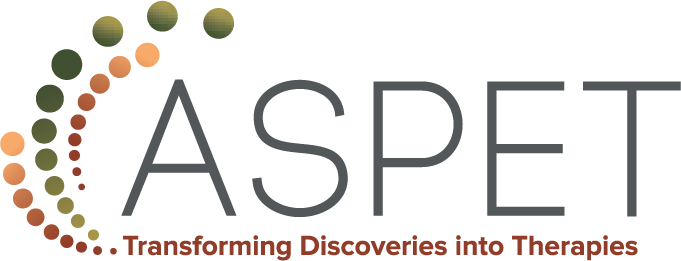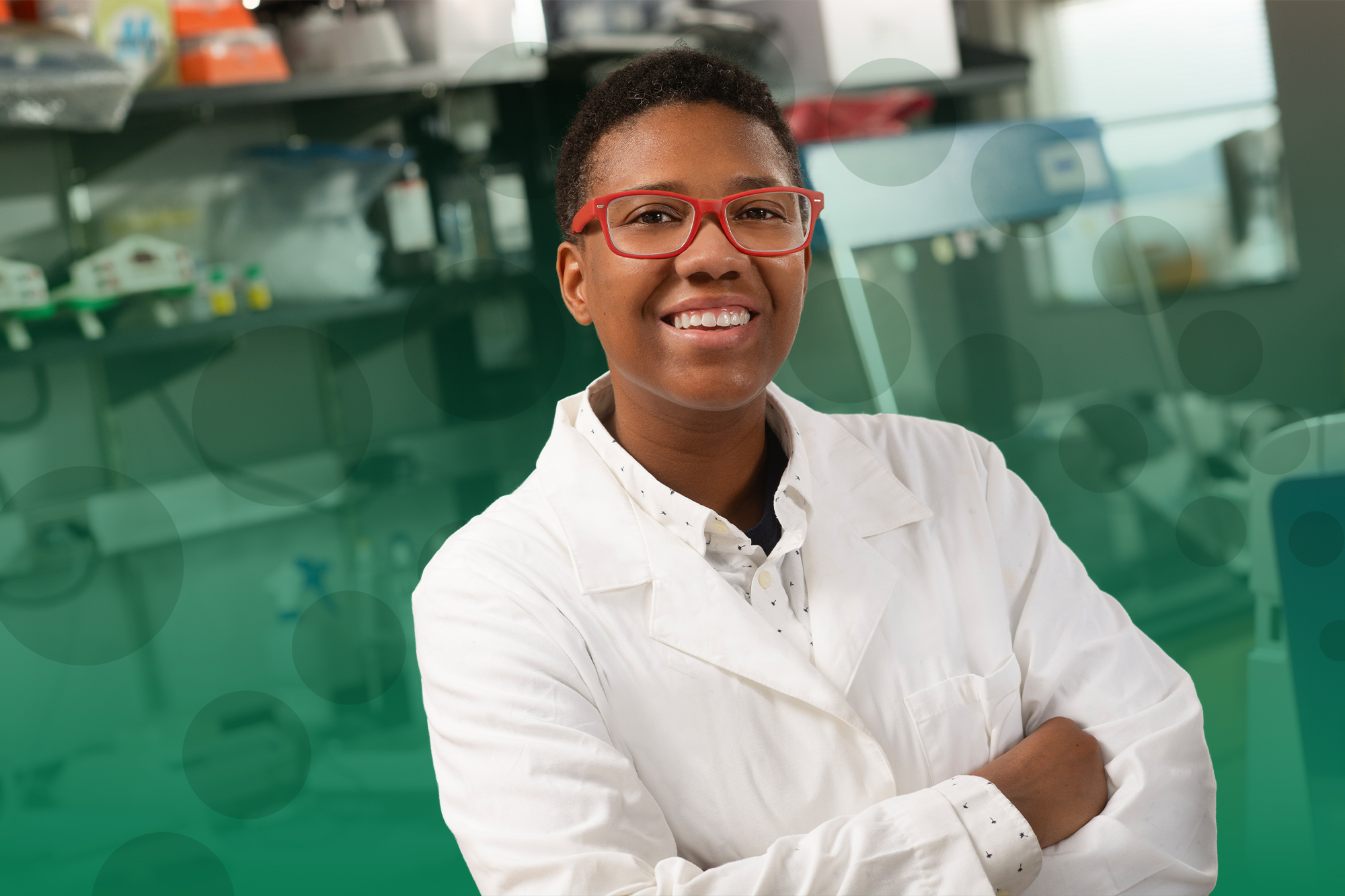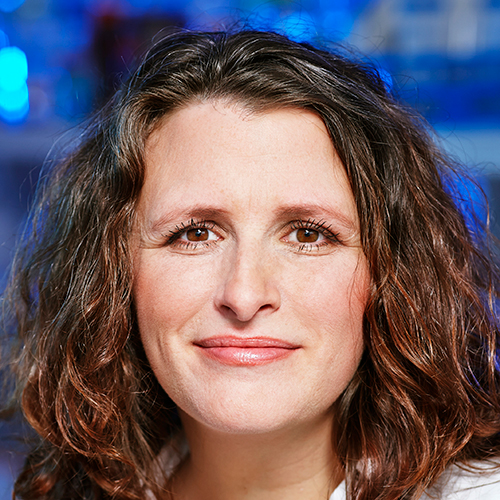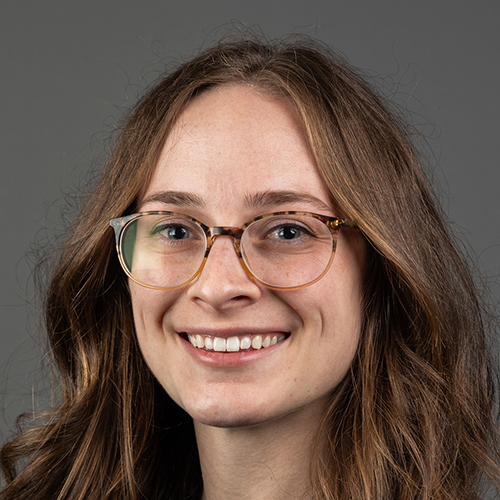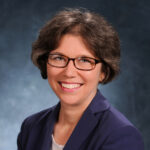Written by Simone Brixius-Anderko, PhD and Janie McGlohon
In honor of Black History Month, The Pharmacologist is highlighting the journey of Dionna Williams, PhD, Associate Professor at Emory University. Dr. Williams was one of two professors at Emory to recently receive the Presidential Early Career Award, the U.S. government’s highest honor for early-career scientists. She joined ASPET in 2022 and is a member of the Division for Drug Metabolism and Disposition.
An Interest Turns into a Passion
Dr. Dionna Williams’ journey into science began with a pivotal decision as a teenager, one that set her on a trajectory toward a world of science. Born into a family rich in artistic talents—singing and dancing in their community church—her initial interests leaned more toward the creative arts. Yet, when faced with a choice between a performing arts school and a science magnet program during high school, she opted for science. The decision was practical at first: the magnet school offered the best education in her region, but what unfolded there sparked a lifelong passion.
In her first year at the science-focused high school in Connecticut, Dr. Williams was exposed to a world she never knew existed. The program was unique in its resources, offering high school students’ exposure to routine science tools such as pipettes and experimental design. It also exposed the students to advanced research techniques such as UV-visible spectroscopy and HPLC, resources typically utilized in college-level courses. These hands-on experiences allowed her to transition from a vague curiosity about science to a deep engagement with its possibilities.
The school’s diverse student body was another eye-opener for Dr. Williams. Her peers came from varying backgrounds—whether white or black, wealthy or economically disadvantaged—and helped Dr. Williams recognize a common interest in science. Despite initially feeling disconnected from other students due to varying interests and backgrounds during her freshman year, she discovered a shared enthusiasm for science that bridged those divides. In her senior year of high school, Williams sold chocolate to fund a student exchange program to Korea, which added an international perspective to science. This experience, along with her high school experience, helped her build confidence in her scientific abilities. She went on to win a state science fair for a project on heavy metals in fish within the community, which deepened her commitment to becoming a scientist and made her transition to college smoother.
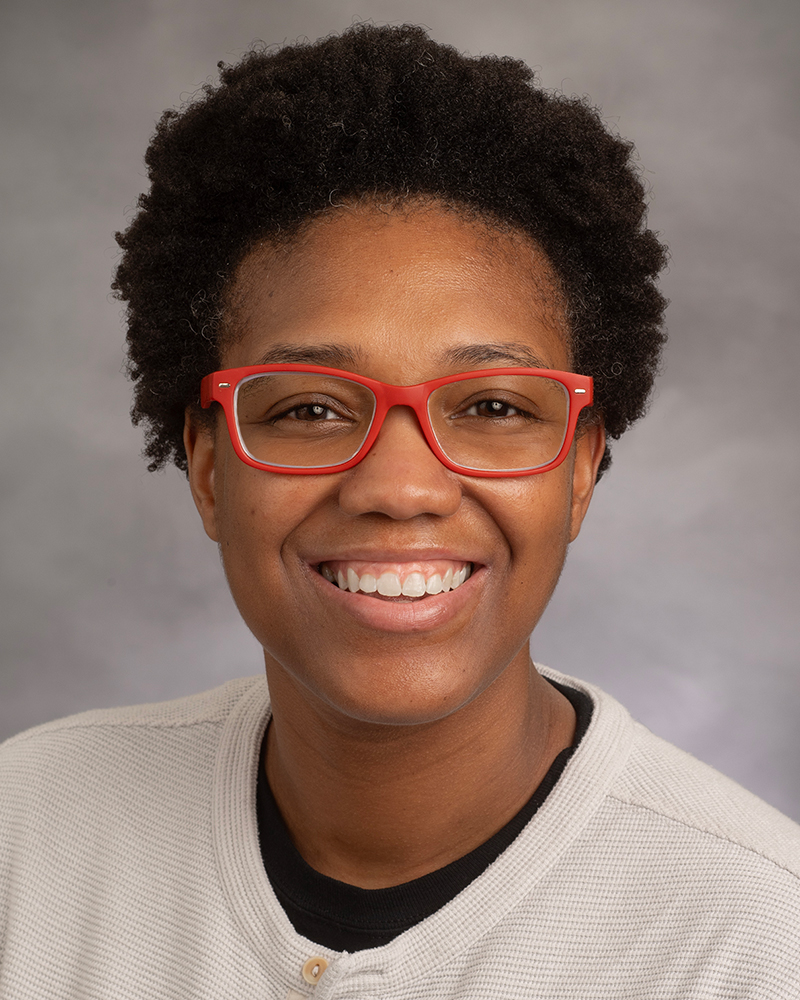
A Period of Growth and Resilience
Dr. Williams is no stranger to the hurdles of being a first-generation college student. Without family members guiding her through the complexities of financial aid or course selection, she often had to navigate these challenges on her own. Added to this were the pressures of working multiple jobs—teaching dance, being a lab tech, pursuing a work study position in the library, and participating in a drama club—while maintaining her academic responsibilities. Nonetheless, she persevered, crediting her resilience to her ability to seek out mentors and peers who could help her navigate unfamiliar territory. Her advice to students echoes this journey, “ask for help, find mentors in your peers with more experience, professors, or teaching assistants” to name a few.
After completing graduate school, Dr. Williams found herself at a crossroads between industry and academia. She attended professional development sessions at her school, but many times found herself thinking, “I don’t want to do that.”
Torn between academia and industry, she chose to pursue a post-doc, knowing it was necessary if she wanted to continue in academia. During her first year, she reflected on her goals, and by the second year, she took the necessary steps to secure the job she truly wanted. Dr. Williams chose academia for its scientific freedom, allowing her to pursue the questions that excite her and to be able to control her own research path.
Unlike her friends in industry, who switched projects frequently, Dr. Williams preferred to finish and answer the questions of her own projects. She also loves the academic environment, particularly mentoring students and witnessing their growth from uncertainty to confidence. Teaching, attending seminars, participating in qualifying exams, and being on recruitment committees adds fuel to her passion.
Dr. Williams’ artistic upbringing has not faded into the background while continuing her academic career. Instead, it informs her scientific practice. “There’s a lot of creativity in science,” she explained, “the questions we ask require innovation and a willingness to think outside the box.” This philosophy has even led her to take improv classes, which she credits with improving her adaptability and mental well-being.
“There’s a lot of creativity in science,” she explained, “the questions we ask require innovation and a willingness to think outside the box.”
Dr. Williams continues to embody her high school’s values of accessibility and mentorship in her work today. She believes deeply in making science relatable and inclusive. “Once I understood what being a scientist involved, I wanted to make sure others could see the same potential in themselves,” she said.
Her lab reflects this, where high school students collaborate with post-docs, teaching techniques and collaborating as equals. This approach embodies her belief that science thrives on humility and teamwork: everyone brings unique strengths and perspectives, making science both fun and more insightful. Moreover, Dr. Williams also advocates for reminding students that there are many fulfilling paths in science beyond academia. Whether it’s teaching, writing, or industry work, she encourages them to focus on what excites them.
For Dr. Dionna Williams, science is more than a career, it’s a way of life shaped by curiosity, emotional fortitude, and a commitment to making the field accessible to all. Her journey from a hesitant high school student to a leader in academic research demonstrates the transformative power of opportunity, mentorship, and resilience.
Transforming HIV Research in Minority Populations
Dr. Williams’ passion for HIV research was initiated by chance. She attended a summer program in college and was assigned a project on HIV. The more she read about and worked on it, the more she realized that she had been surrounded by the damage HIV had done throughout her life.
“I grew up during the 1990s when many people were dying from HIV because there was a lack of effective medication. I remember that in high school my friend’s brother had HIV. I saw him struggling over the years and how afraid people were to contract the disease. People with HIV were outcasts of society,” Dr. Williams said.
During the early 1990s, there were many HIV documentaries on TV as well that she remembers vividly. She also remembers the bravery of people living with HIV to fight for recognition and more research on the deadly virus. Especially people from marginalized backgrounds who did not receive the treatment they deserved and still today, there are many gaps in serving minority populations. This is what drives Dr. Williams in her research today, shaped by the experiences she had when she was young.
Dr. Williams’ dream is that everyone receives effective HIV treatment regardless of their background. Her research particularly focuses on the inclusion of people suffering from Substance Use Disorder with a special focus on cocaine. Today’s HIV treatment still focuses on patient survival and extending their lives. The fact that HIV manifests in the brain and results in cognitive issues is largely understudied. Substance abuse frequently coincides with HIV infection.
Dr. Williams’ dream is that everyone receives effective HIV treatment regardless of their background.
“People suffering from substance abuse are often excluded from studies because the assumption is made that they won’t take their medication anyway. But how can we learn about the interaction of HIV treatment and substance use when we exclude those populations due to prejudice and false assumptions?” Dr. Williams states that cannabinoids might have a beneficial effect during HIV treatment.
Her lab is interested in the detrimental effects cocaine consumption has on current treatments. “We always consider the liver as a main drug metabolizing organ. Our research actually shows that the brain and the blood brain barrier metabolize HIV drugs very effectively. This leads to a decreased drug efficacy in the brain.”
Dr. Williams’ team also found a link between CYP3A4, the major drug metabolizing cytochrome P450 enzyme, and cocaine use where cocaine can decrease or increase CYP3A4 metabolic activity and drug clearance.
“We need to consider those substances as key players in drug-drug interaction scenarios. We cannot further exclude people who use substances from studies which could show us how to effectively treat this population. They deserve individualized treatment and management of their HIV infection.”
Creating Personal Space
Dr. Williams is an avid martial arts afficionado actively practicing Muay Thai. She started with Tae Kwon Do during graduate school and appreciated the structure and consistency it created in her life and the benefits it has on her physical and mental health. “I just love the muscle memory which allows me to shut my brain off. As scientists, we often have a hard time to accomplish that,” she said.
She also loves yoga which keeps her grounded and connected to her body. Her 4-year-old son is a constant source of joy and fun in her life. “He doesn’t care if my grant proposal was scored or not. He always sees me as the best person, nonetheless. I love playing Ninja Turtles with him or stepping on crunchy leaves in the Fall. It keeps me grounded even though it is often hard to be a mom in academia.”
Dr. Williams’ advice is to find that unconditional love outside of science which can be found in friends, pets, parents and partners. “This love is the key to maintaining happiness outside of science and to give us perspective.”
“Love is the key to maintaining happiness outside of science and to give us perspective.”
Staying grounded is particularly important in the light of Dr. Williams’ Autism diagnosis. “I did not know I was Autistic until two years ago. After my diagnosis, many things in my life finally started to make sense.” She often felt a disconnect between her and other people and didn’t know why. She had troubles others didn’t seem to have, like bright light or too much noise in a room. Although Dr. Williams often feels lonely, she draws a lot of positivity from being Autistic.
“Being neurodivergent allows me to approach scientific questions with great creativity and ‘outside of the box’ thinking. I can also hyperfocus on tasks which allows me to get a lot of work done within a minimum amount of time.”
Autism allows her to be more compassionate for the “other” scientists from minority backgrounds because she knows what that feels like. Dr. Williams learned to combat her feeling of loneliness with compassion and kindness for others.
Dr. Williams is a rising star in the field of drug metabolism and disposition with numerous accomplishments during her early career. She is eager to change the way we approach HIV treatment. However, the legacy she wants to leave behind are her mentees, the next generation of pharmacology researchers.
“It gives me a tremendous amount of joy to help my students and trainees acquire the skills to fulfill their dreams and to watch them grow and do great things! It is always about the journey and having positivity inside and outside of the lab. I want to convey that no matter where you are coming from you can achieve your goals and have fun while doing what you are doing. Hard work, determination, persistence, and a little bit of luck eventually pays off!”
Authors
-

Simone Brixius-Anderko, PhD, is an Assistant Professor at the University of Pittsburgh School of Pharmacy. She currently serves as the Communications Officer for the ASPET Division for Drug Metabolism and Disposition.
View all posts -

Janie McGlohon is a Biochemistry PhD candidate at the University of Buffalo. She serves as the Junior Communications Officer for the ASPET Division of Drug Metabolism and Disposition.
View all posts
